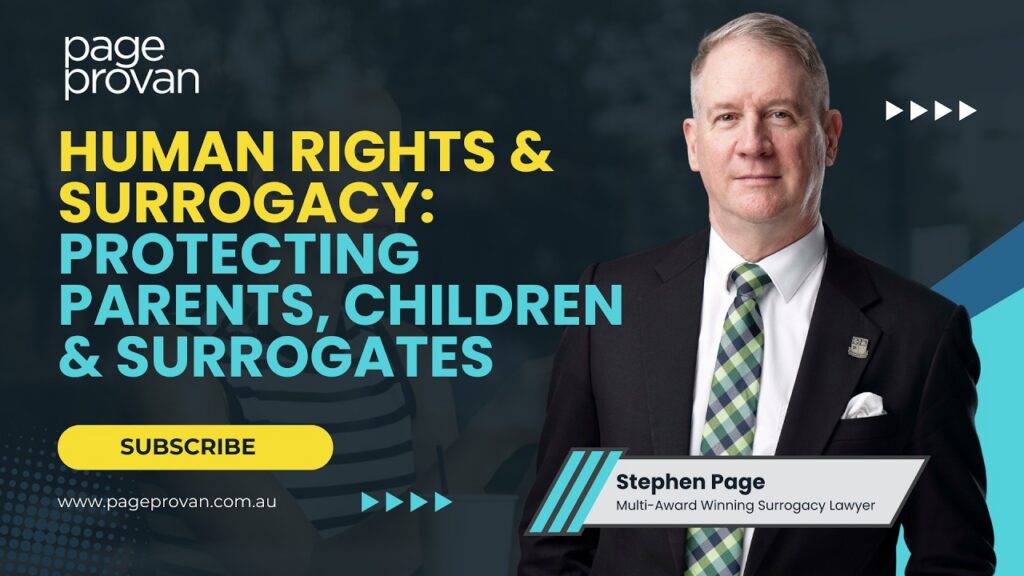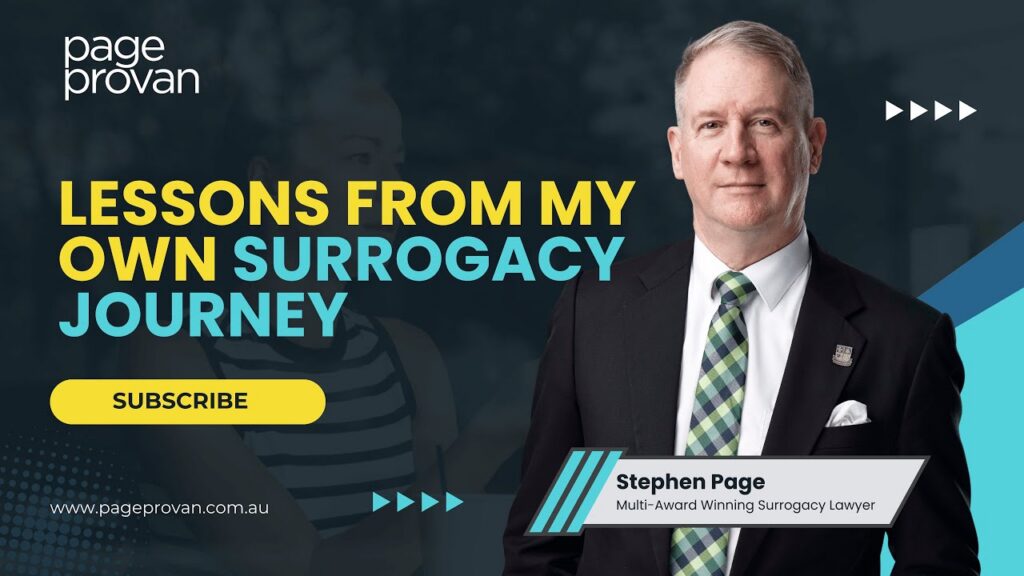What You Need to Know About Child Support
When a couple separates and there are children involved, generally, one parent will pay child support to the other parent. In this video, Accredited Family Law Specialist Bruce Provan breaks down the essential things you should know about child support.
Transcript
My name is Bruce Provan, I am the Managing Director of Page Provan, Family and Fertility Lawyers, we are a specialist family and fertility law practice in central Brisbane.
I want to talk today about child support, because when a couple separates and there are children, generally, one parent will be required to pay child support to the other parent. The way it works in most cases is that the parent who has the majority of the care of the children makes an application to the child support agency, which is a division of the Department of Human Resources for an assessment, and what the agency does then is to go and look at the most recent tax return of each of the parents.
They do a formula calculation based upon each party’s taxable income, the ages of the children, the number of children, and the number of nights that the children spend with each parent and that produces an assessment, a periodic assessment.
Now, if the parents don’t agree otherwise, that is the amount of child support that one parent will be required to pay to the other parent, and it’s the job of the child support agency to make sure that the paying parent pays the amount that they’re required to do so, and they can take whatever action is required to recover that debt, including a departure Prohibition Order, which prevents the parent with the outstanding child support debt from leaving the country.
But there are alternatives to the child support assessment. One of the alternatives is that parents agree between themselves about the amount of child support one is required to pay to the other, or about the type of child support they’re going to pay.
So for example, you may have a situation where one parent agrees to pay the school fees or other expenses for the children, and if people reach an agreement between themselves, these are the parents, if they reach an agreement between themselves, they can either have an informal arrangement between themselves where the money gets paid voluntarily and as long as it gets paid, that’s fine.
But for other people, they should have a child support agreement. So a child support agreement is a written document usually prepared by a lawyer, and there are two types of child support agreement, one is a limited child support agreement, and a limited child support agreement can be registered with the child support agency.
The parents don’t have to have independent legal advice before they sign it, and the advantage of the limited child support agreement is that after three years, either party can choose to terminate the agreement and then renegotiate.
One of the other advantages of a limited child support agreement is if the notional child support assessment drops by more than fifteen percent, then one of the parties can have that agreement set aside. The other form of child support agreement is a binding child support agreement, and a binding child support agreement is much harder to have it set aside.
It will only be set aside in very limited circumstances specified in the legislation. Before people can enter into a binding child support agreement, they must both have advice, independent advice from a lawyer about the advantages and disadvantages of entering into that agreement.
Often, child support agreements are negotiated along with a property settlement, and then once the agreement is signed, they can then be registered with the child support agency, who can then take steps to enforce the agreement if one party doesn’t comply.
My name is Bruce Provan, I’m the Managing Director of Page Provan, Family and Fertility Lawyers.












